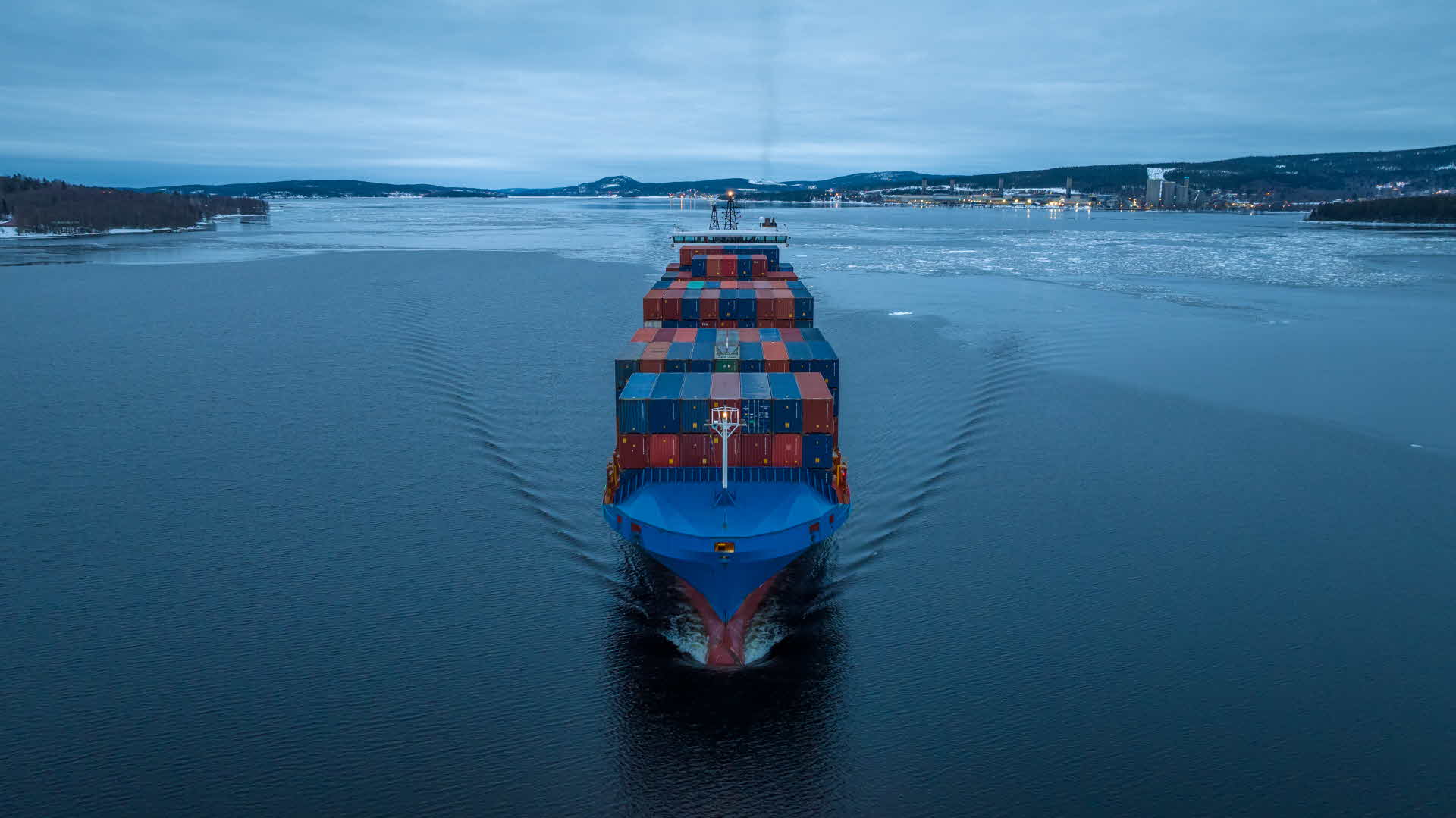
Increased external costs in the transport sector
- News
- Logistics
External costs in the transport sector have increased in recent years and are continuing to do so. The amount of emissions that must be covered by rights has increased, as have track access charges, while a new quota obligation has been introduced, all of which are contributing factors.
“We can mitigate the effects together through constructive cooperation,” says Magnus Svensson, President SCA Sourcing and Logistics.
Maritime transport is now included in the EU Emissions Trading System (ETS) and since the turn of the year 40 per cent of CO2 emissions must be covered. In 2025, the bar will rise to 70 per cent and in 2026, rights will be required for 100 per cent of emissions.
Meanwhile, external costs are also increasing in other areas. Under the FuelEU maritime initiative, a large percentage of shipping will be covered by a quota obligation to increase the use of renewable fuels. The quota obligation begins at 2 per cent in 2025, rising gradually from 2030 onwards.
“Of course, these are fundamentally good measures for achieving a transition to more sustainable transport. However, at present there are no commercially available renewable fuels for vessels. The price difference compared to bunker fuel is far too great so, in the short term, a full-scale transition could mean some maritime transportation being outcompeted by other modes of transport that have a greater climate impact. It will also significantly reduce the competitiveness of certain regions, such as Sweden and Finland. Preferably, the transition therefore needs to wait until we eventually find more cost-effective solutions,” says Magnus.
A challenge to industry
Costs are also rising on the railways, with increased track access charges, and in maritime transportation in the form of higher fairway dues and pilotage fees. Track access charges have risen by around 10 per cent for several years in a row and next year will see another substantial rise of as much as 55 per cent. There is also a risk that maritime dues and fees will rise by up to 25 per cent next year.
“The sum of all of these rapid increases in external costs presents a challenge to industry. Industries in both Sweden and Finland depend on long-distance transportation to compete with industry on the Continent and countries outside the EU,” says Magnus.
Constructive collaboration
Magnus underlines the importance of constructive cooperation to mitigate the impact of rising prices.
“For example, it might be a matter of agreeing to accept slightly longer lead times. Operating fewer but larger vessels at slower speeds will decrease fuel consumption. This will mean lower costs for bunker fuel and emissions rights.”
Developing larger ships and longer lorries is another important component.
“In retrospect, we can see that that, globally, the average vessel size has more than doubled over the last 15 to 20 years, while lorries have also increased in capacity. As a result, fuel consumption per tonne-kilometre has decreased significantly and we need to continue to maintain a good pace in this development,” says Magnus.
Text: Kerstin Olofsson
Photo: Håkan Sjödin